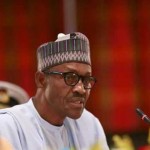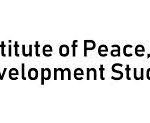Over 4 Billion People Lack Social Safety Net Globally To Cushion COVID-19 Impact —ILO
African News, Latest Headlines, News, North Africa, World News Thursday, September 2nd, 2021
(AFRICAN EXAMINER) – No fewer than four billion people live without any welfare protection globally to cushion the impact of COVID-19 pandemic, the UN International Labour Organisation (ILO) has said.
ILO stated in a new report on Wednesday that COVID-19 crisis had also pushed up government spending by some 30 per cent.
It stated that the situation had led to a call for countries to extend social safety nets far more widely than they doing presently.
ILO’s Director-General, Guy Ryder, insisted that such a move would help future-proof workers and businesses in the face of new challenges.
“This is a pivotal moment to harness the pandemic response to build a new generation of rights-based social protection systems,” Ryder said.
He said these could cushion people from future crises and give workers and businesses the security to tackle the multiple transitions ahead with confidence and hope.
“We must recognise that effective and comprehensive social protection is not just essential for social justice and decent work but for creating a sustainable and resilient future too,” he said.
The UN body, in the report, acknowledged that the COVID-19 crisis had led to greater social protections worldwide, albeit mainly in wealthy countries.
It noted that only 47 per cent of the global population were covered by at least one social protection benefit, while only one in four children had access to national welfare safety nets.
Further research indicated that only 45 per cent of women with newborns worldwide received a cash benefit while only one in three people with severe disabilities received a disability benefit.
Coverage of unemployment benefits is even lower, ILO said, with only 18.6 per cent of jobless workers effectively covered globally.
On retirement welfare, the UN body found that although nearly eight in 10 people received some form of pension, major disparities remained across regions, between rural and urban areas and women and men.
The ILO report underscores the significant regional inequalities in social protection.
Europe and Central Asia have the highest rates of coverage, with 84 per cent of people having access to at least one benefit.
Countries in the Americas are also above the global average (64.3 per cent), in stark contrast to welfare roll-out in Asia and the Pacific (44 per cent), the Arab States (40 per cent) and Africa (17.4 per cent).
Highlighting differences in government spending on social protection, ILO said high-income countries spent 16.4 per cent of national turnover (above the 13 per cent global average, excluding health), while low-income countries budgeted just 1.1 per cent.
The UN body noted that since the start of the COVID-19 pandemic, governments increased spending massively to ensure minimum social protection for all, by around 30 per cent.
And it maintained that to guarantee basic social protection coverage, low-income countries would need to invest an additional 77.9 billion dollars per year, lower-middle-income countries, an additional 362.9 billion dollars, and upper-middle-income countries a further 750.8 billion dollars annually.
That’s equivalent to 15.9 per cent, 5.1 per cent and 3.1 per cent of their GDP, respectively. (NAN)
Related Posts
Short URL: https://www.africanexaminer.com/?p=67363






















